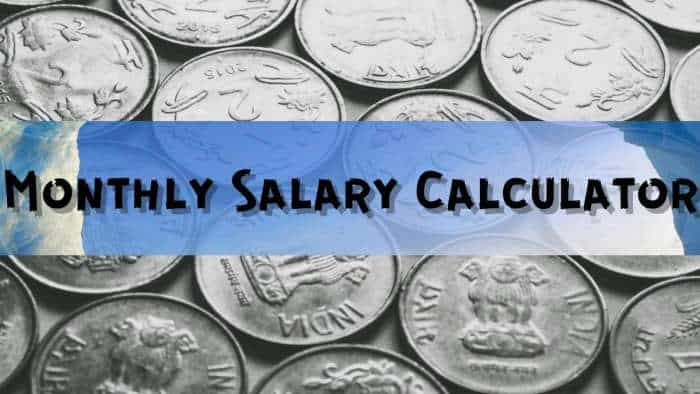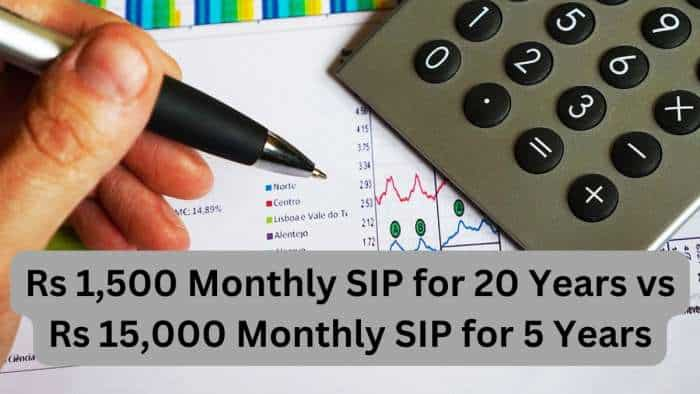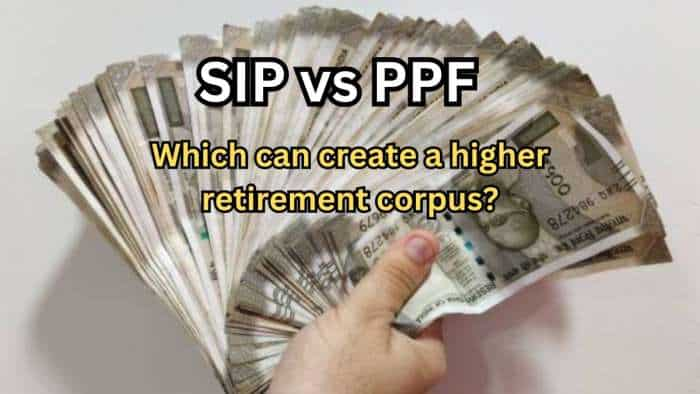EPF vs NPS Money-making Tip: Which is better after Employees' Provident Fund investment beyond Rs 2.5 lakh turns taxable?
EPF vs NPS: As your EPF (Employees' Provident Fund) is no more an EEE category investment, it becomes important to know if someone investing more than Rs 2.5 lakh in one's Provident Fund (PF) account has any other money-making investment option or not?

EPF vs NPS: As your EPF (Employees' Provident Fund) is no more an EEE category investment, it becomes important to know if someone investing more than Rs 2.5 lakh in one's Provident Fund (PF) account has any other money-making investment option or not? For such EPF account holders, EPF will continue to remain a better option whose risk appetite is low as it gives assured return though taxable above Rs 2.5 lakh investment. But for those who have higher risk appetite, the National Pension System (NPS) can be a better option provided they follow the money-making ideas using the flexibility available in the NPS scheme.
See Zee Business Live TV Streaming Below:
Speaking on EPF vs NPS Scheme, Pankaj Mathpal, Managing Director at Optima Money said, "If someone has a higher risk appetite, NPS is a better option because it gives equity exposure that enhances the probability of return. However, EPF can't be nullified just because interest earned on investment above Rs 2.5 lakh in one financial year becomes taxable. It gives assured return and hence one should go for as much as one can invest in EPF."
Speaking on the NPS interest rate one can earn in the long-term, Kartik Jhaveri, Director — Wealth Management at Transcend Consultants said, "It's like choosing amongst the good, better and best. In my opinion, if someone has to choose between EPF and NPS, then I would strongly recommend NPS because it gives equity exposure that would give higher returns in the long-term. In NPS, one can invest up to 75 per cent in equity. However, having 60 per cent equity exposure is what makes an NPS account balanced. This 60:40 (equity:debt) ratio will give around 10.5 per cent return on one's money in the long-term, which is around 2 per cent higher than the current EPF interest rate. So, those who have higher risk appetite can go for the NPS instead of the EPF."
Reminding about the difference in withdrawal rules in EPF and NPS; Pankaj Mathpal of Optima Money said that in EPF one can withdraw full EPF Passbook Balance after retirement while in the case of NPS, one can withdraw up to 60 per cent of the NPS balance post-retirement. So, much will depend on the investment goal and risk factor of the investor rather than the average annual return in ELF and NPS, he said.
Get Latest Business News, Stock Market Updates and Videos; Check your tax outgo through Income Tax Calculator and save money through our Personal Finance coverage. Check Business Breaking News Live on Zee Business Twitter and Facebook. Subscribe on YouTube.
RECOMMENDED STORIES

Monthly Pay Calculations: Is your basic salary Rs 24,900, Rs 51,500, Rs 70,000, or Rs 1,01,400? Know what can be your total salary?

Gratuity Calculation: What will be your gratuity on Rs 45,000 last-drawn basic salary for 6 years & 9 months of service?

Rs 1,500 Monthly SIP for 20 Years vs Rs 15,000 Monthly SIP for 5 Years: Know which one can give you higher returns in long term

Income Tax Calculations: What will be your tax liability if your salary is Rs 8.25 lakh, Rs 14.50 lakh, Rs 20.75 lakh, or Rs 26.10 lakh? See calculations

8th Pay Commission Pension Calculations: Can basic pension be more than Rs 2.75 lakh in new Pay Commission? See how it may be possible

SBI Revamped Gold Deposit Scheme: Do you keep your gold in bank locker? You can also earn interest on it through this SBI scheme

SIP vs PPF: Rs 1,00,000/year investment for 35 years; which scheme can generate a higher retirement corpus
07:41 AM IST










 Retirement fund body EPFO's net new member additions up 9% at 18.5 lakh in August
Retirement fund body EPFO's net new member additions up 9% at 18.5 lakh in August  What is Employee Pension Scheme (EPS)? How much monthly pension will you get on Rs 15,000 basic salary?
What is Employee Pension Scheme (EPS)? How much monthly pension will you get on Rs 15,000 basic salary? EPF rules explained: How to make a partial withdrawal online for marriage, home renovation or medical emergency
EPF rules explained: How to make a partial withdrawal online for marriage, home renovation or medical emergency PPF vs VPF: What are the similarities between these schemes? Which can be a better investment option?
PPF vs VPF: What are the similarities between these schemes? Which can be a better investment option? Pension Payment Order: What is PPO number? How to find PPO for receiving pension in bank account
Pension Payment Order: What is PPO number? How to find PPO for receiving pension in bank account